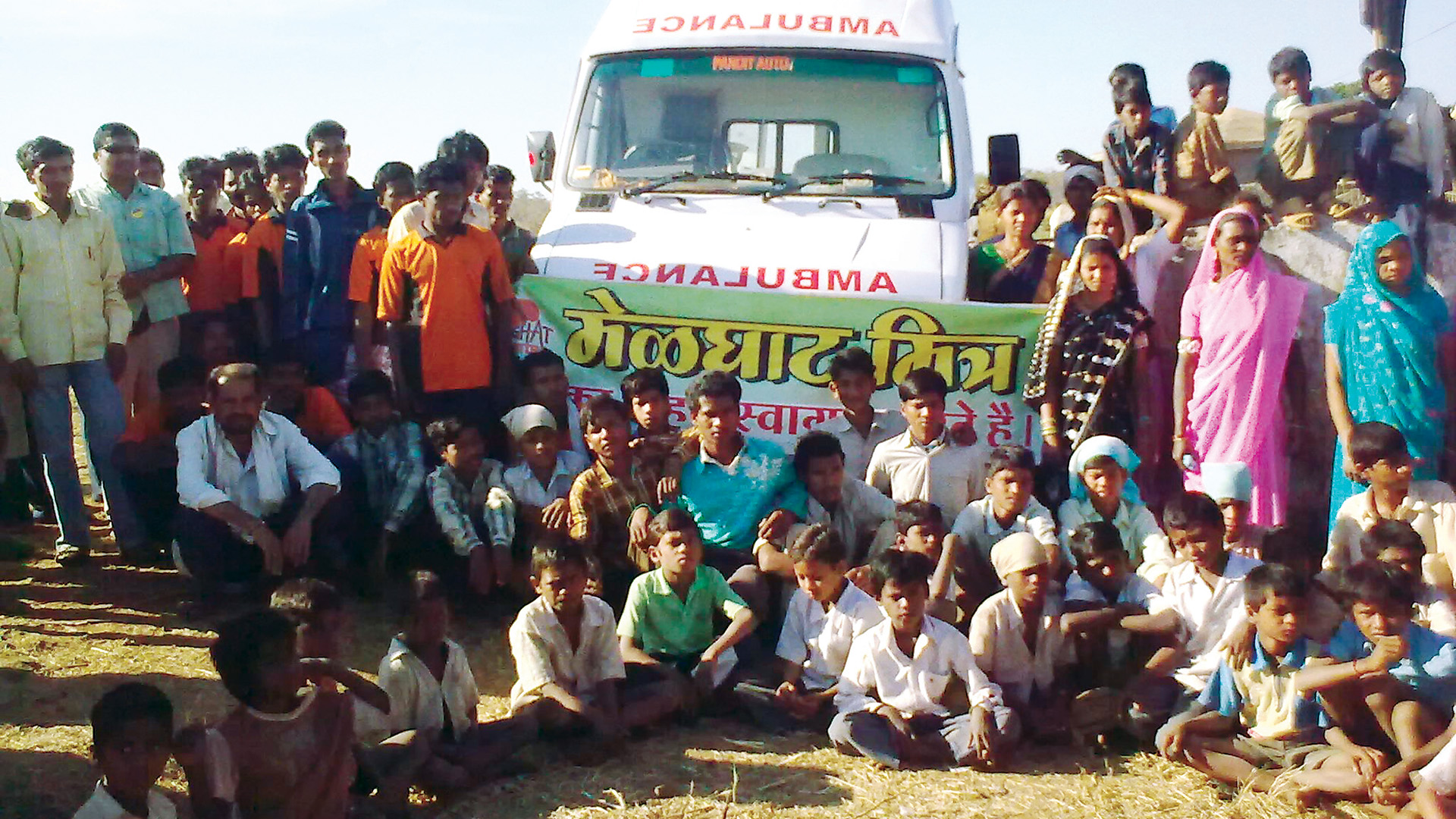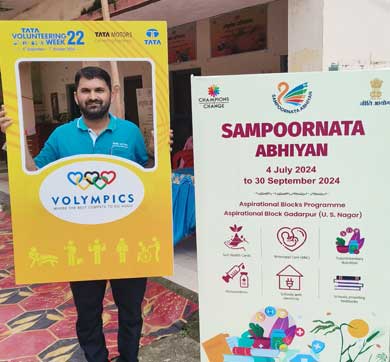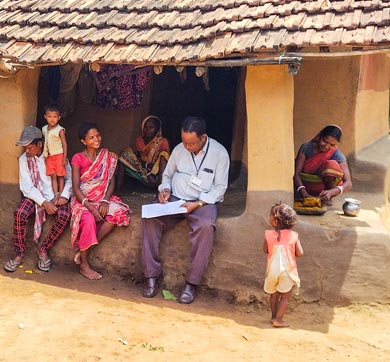June 2025 | 1670 words | 6-minute read
Melghat: the Somalia of Maharashtra, declared the headline in Marathi-language newspaper Sakal, one morning in 1997. The story highlighted the plight of tribal communities in Melghat, in Amravati district in Maharashtra, near the border with Madhya Pradesh — a region that had seen 3,000+ child deaths that year due to malnutrition.
The article drew attention to the work done by Pune-based social activists Dr Abhay Bang and Dr Rani Bang in improving infant mortality and neonatal care in rural Maharashtra. Their survey of the Melghat region found malnourished children in nearly every home, a majority of whom suffered from severe acute malnutrition (SAM), the most extreme form. The doctors called for volunteers to help them tackle the problem.
The images of malnourished children and the question of how a progressive state like Maharashtra could harbour such distress provoked Mangesh Joshi, Store Attendant at the Tool Engineering department of Tata Motors Passenger Vehicles, to action. He and a few others, all Tata Motors employees working in Pune and avid trekkers, stepped up to help. The group, later known as Melghat Mitra, comprised Ganesh Raut, Shriram Ramdasi, Pravin Pawar, Prashant Pimpalnerkar, Ganpat Baravakar, Santosh Kale, Sudhir Gaikwad, Manohar Lolage and Mr Joshi.
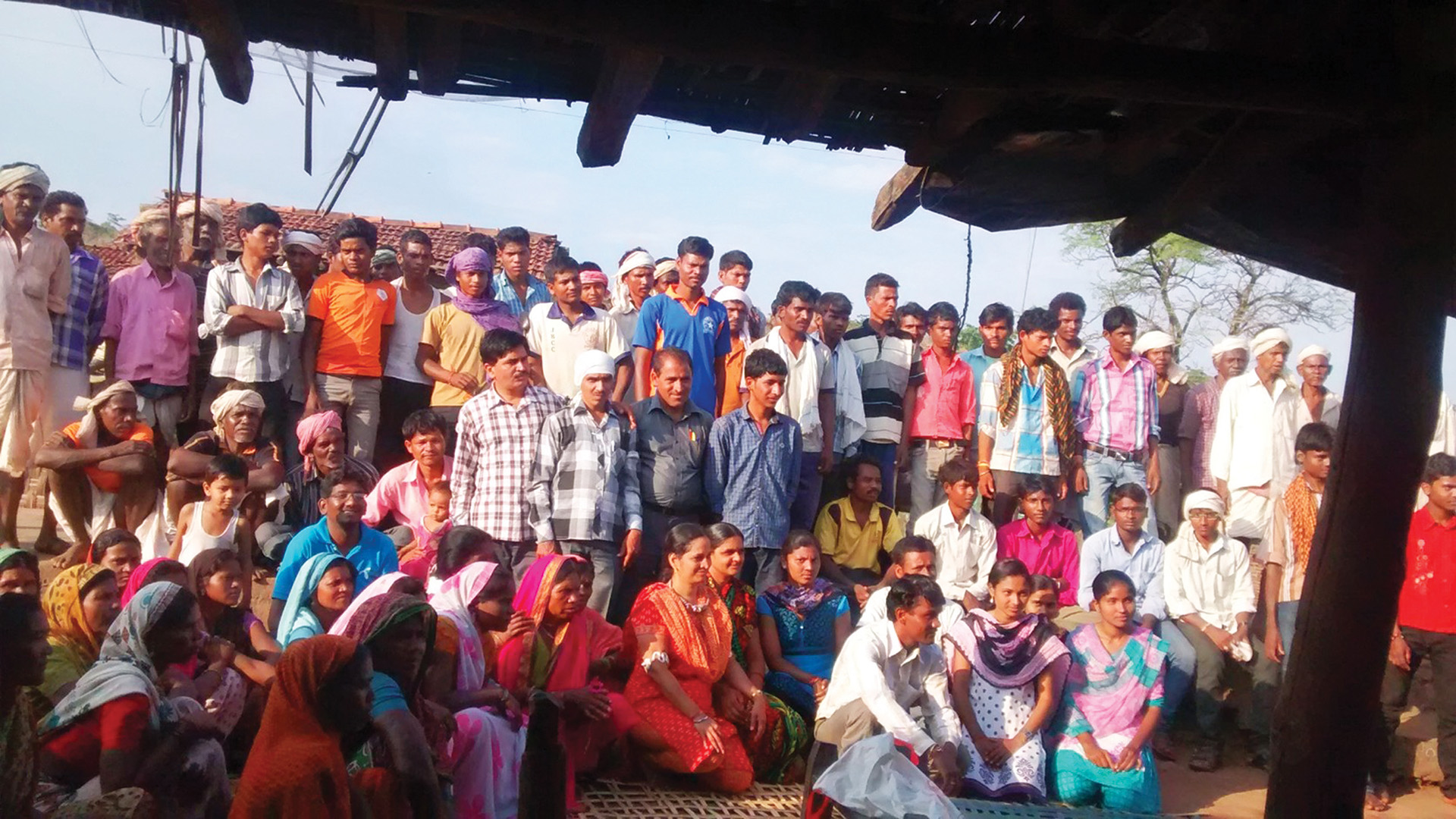
Building a thriving community
- Malnutrition brought down to the state average
- Improved access to education, from Std 7 (in 1997) to graduation today
- Increased career pathways for the youth (at Tata Motors, in the forest guard, police force, etc)
- Successful livelihood generation and increase in income through sustainable agriculture
- Enhanced participation in local self-governance
That same year, Mr Joshi reached out to Dr Bang and said, “Whenever you need us, we will be there. We will apply for leave and come to help.” Twenty-seven years later, having spent 450+ earned leaves per Mitra and footing the bill for all their programmes, their fire to serve continues to burn strong.
Difficult start
Their resolve was tested right at the beginning, as they struggled to reach Melghat, located ~650km from Pune. “There was no connectivity then,” says Mr Joshi. “It took us 18 hours by bus to reach Amravati. From there, the closest village was over 80km away, along a makeshift road in a dense forest. That trek took us over eight hours. Fortunately, as trekkers, we knew how to cross rivers and valleys.”
Theirs was the third batch of volunteers to enter the region and offer help. The Korku tribe had refused to meet the first two groups. Enquiries revealed that the Korkus distrusted ‘jangdi people’. Jangdi referred to shirts and trousers, usually associated with the forest department, with whom the community was in constant conflict.
To be seen to belong, the volunteers would have to dress like Korkus, in dhotis and sadras, a cotton upper garment. Dressed this way, the team entered the village, and the community relented and agreed to meet them.
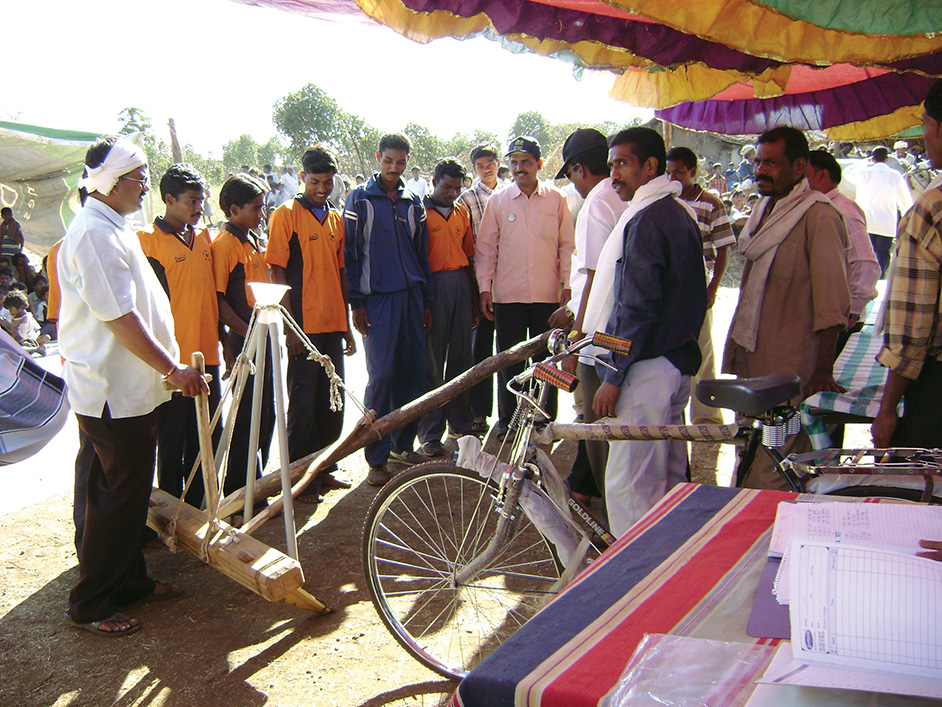
The team explained the mission and requested lodging arrangements for ~20 doctors and volunteers; the former were second- and third-year medical students. Over the next three months, over 200 volunteers, responding to the call from the Bangs, visited six villages to examine the children. Those suffering from SAM were rushed to the government Primary Healthcare Centres (PHC).
Despite the hard work, one child was lost. “She was a five-year-old, weighing only 6kg,” says Mr Joshi. “The doctor warned that she needed urgent help, but the parents wouldn’t agree. I carried her to the PHC, running all the way, but she died. Her death became a trigger to redouble our efforts, and the volunteers pledged to spend 15 days every year working there.”
Birth of a movement
That resolve led to the creation of the Melghat Mitra. Over the years, many volunteers joined and left the Melghat Mitra, but the core group from Tata Motors continued. The team launched Dhadak Mohim (Marathi for ‘forceful effort’) during the monsoons, when incessant rains cut off access to PHCs, leading to maximum child deaths. Volunteers, including doctors, stayed in the villages, providing early diagnosis and treatment for infections that could turn deadly, if untreated.
Other curative and preventive measures were launched in partnership with the government’s forest and agriculture departments and the Integrated Child Development Services programme. Tata Motors pitched in with medicines and enabled transportation for last-mile connectivity. “Tata Motors gave us solar lamps and a fully equipped ambulance, which enabled 186 deliveries, curbing the infant mortality rate and maternal mortality rate,” says Mr Joshi. “The company also guided us on how to tackle various problems. Without its support, we would have lost our enthusiasm.”
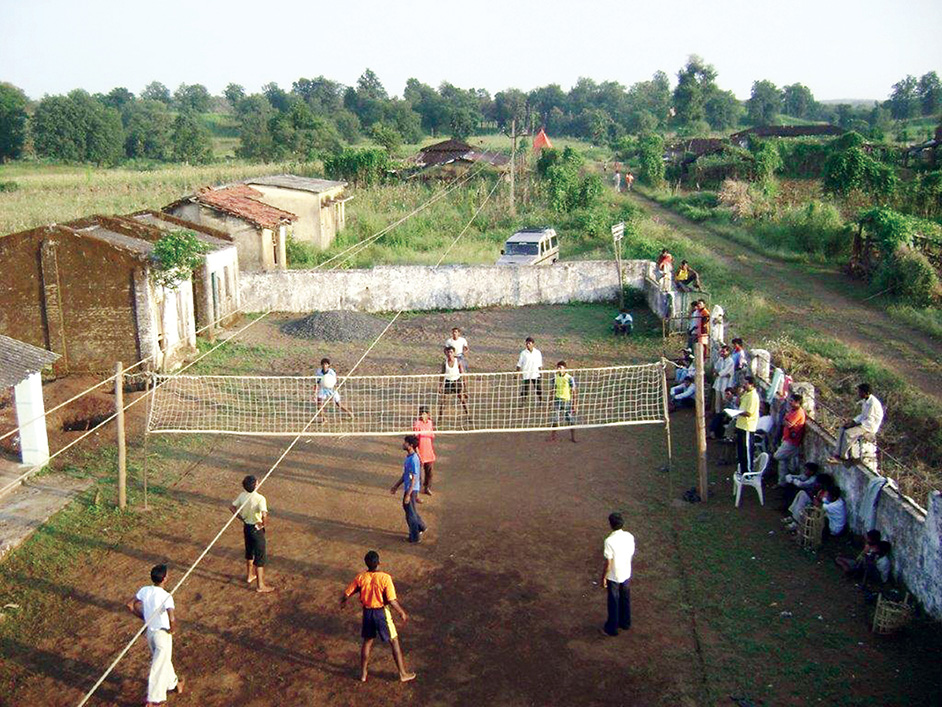
Runaway success
In 2003, Melghat Mitra started a six-day annual sporting programme, with adults and children from ~13 villages. Participants played competitive sports like volleyball, kabaddi, athletics, etc, with Tata Motors providing equipment and sponsoring prizes like buckets, vessels, groceries and bicycles. Parents who showcased positive behaviour (they were teetotallers or had healthy children) were also awarded utility items and solar lamps, the latter a big draw in a region that didn’t have electricity until a few years ago.
During a visit in 2011, Mr Joshi’s wife, a physical education teacher, timed the youngsters and found that their speeds almost matched those of the best Pune marathon runners. When Mr Joshi apprised the then sports head of Tata Motors of this, the latter signed up 16 youth for the Pimpri-Chinchwad marathon. The company arranged for their stay and meals, and a special coach trained them for 10 days. Of the 16 participants, 14 bagged the first three places in the 3km, 5km, 10km and 21km races. Tata Motors continued to offer support for the next eight years. “These children came from families whose annual family income was no more than Rs 60,000,” says Mr Joshi. “Now they were winning prizes of Rs 25,000.”
Solving a man-made crisis
Melghat’s malnutrition problem goes back to 1974 when the region was designated a tiger reserve by the central government. “Suddenly the forest that had been their home for centuries became out of bounds for the tribals,” says Vinod Kulkarni, Head of Corporate Social Responsibility, Tata Motors. “Their traditional activities, farming and foraging, which had long sustained their needs were deemed criminal. The communities were disenfranchised.”
With the Korkus unable to feed themselves and their families, malnutrition soon became rampant. The Public Distribution System (PDS) and the medical infrastructure, thriving on paper, were missing on-ground. Unscrupulous shopkeepers sold them a mere portion of their foodgrain entitlement, that too grain of poor quality. Local PHCs were unstaffed. The villagers, unaware of their rights, surrendered to their dismal fate.
When Melghat Mitra arrived in the region, there was much work to be done. The team soon realised that to address malnutrition at its roots, access to basic health and education services had to be ensured as well as sustainable livelihood mechanisms for the families. Initial efforts focused on health and education. As the Korkus became more educated, superstition lost its hold, and they stopped visiting faith healers.
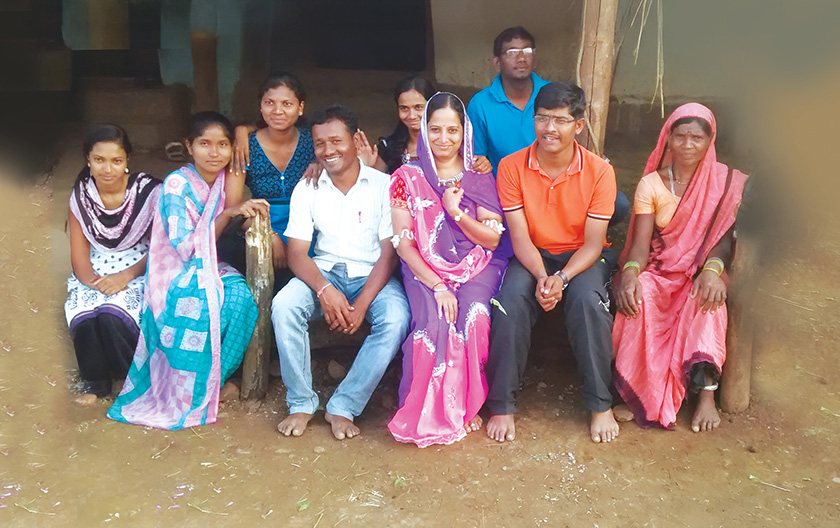
Children who had completed Std 7, the highest level of education available in Melghat, were brought to Pune for further education. The girls were enrolled at Sassoon Hospital, where they received paramedical training and began working as health workers. The boys were enrolled in Aksharnandan School, where they learnt about childcare and early education. They were then posted as Boko (‘small boy’) Mitras in the villages, teaching life skills and leading social interventions in the community.
Subsequent initiatives focused on livelihood generation, a crucial factor influencing health and nutrition. According to Dr Bang’s report, the community ate full meals only for 186 days in a year; the rest of the year, their diets fell far short of the daily calorie requirement.
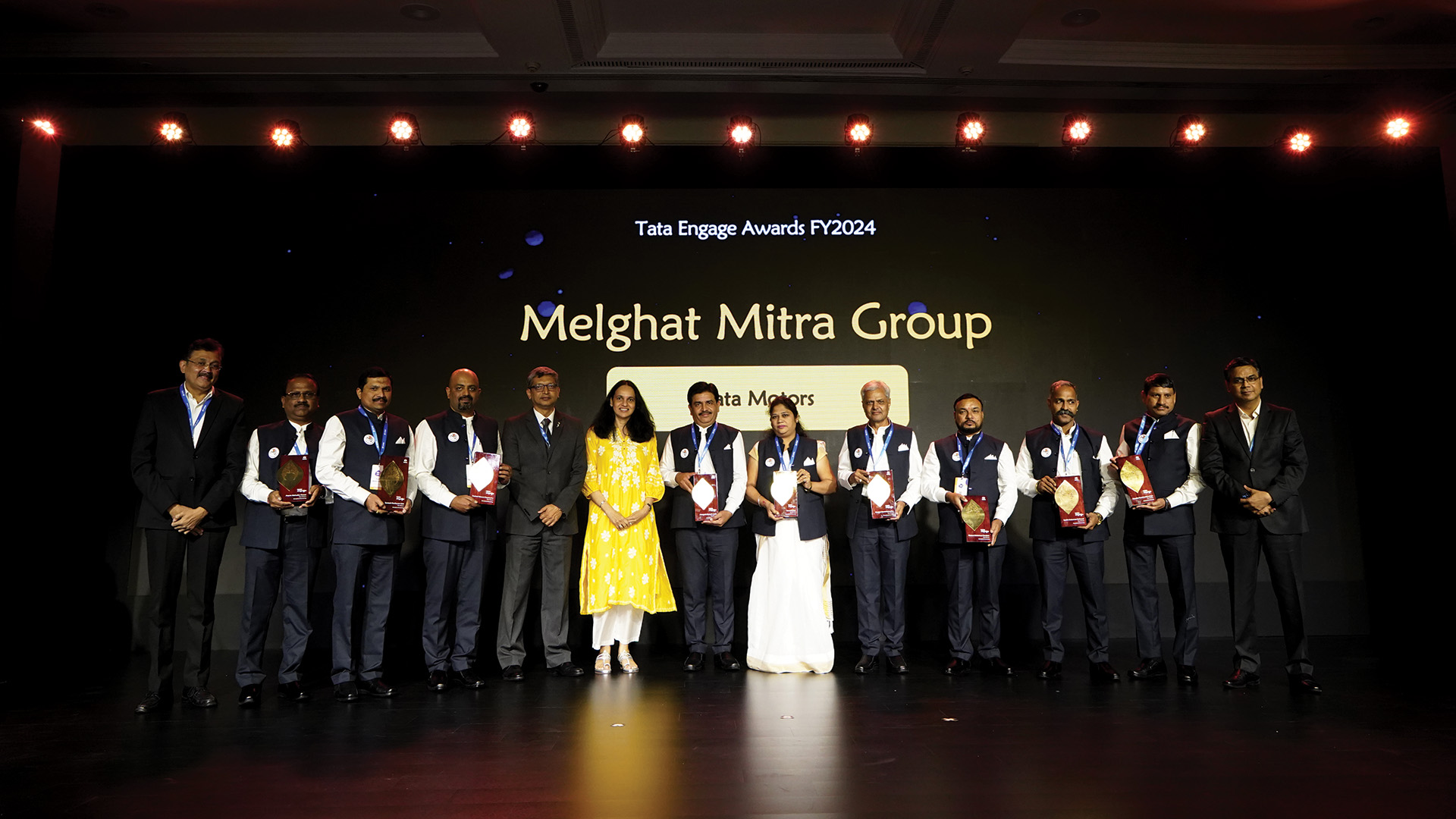
Steady improvement
Over the years, Melghat Mitra’s work spread from six villages to 56, with direct intervention in 12 villages and need-based efforts in others. “The communities now access government schemes,” says Mr Joshi. “Young people have become sarpanches, ensuring transparency and effectiveness in the panchayat system. The PHCs are fully staffed and the PDS is completely operational. Today, there is no malnutrition in these villages, thanks to improved farming practices and livelihood generation efforts.” Child mortality is down to the state average.
Through an alliance with the College of Agriculture, Akola, the Korkus have learnt about organic cultivation, inter-cropping, animal care, etc. This has helped improve crop yield and nutritional standards. Melghat Mitra has facilitated market linkages for forest and farm produce, which has increased annual incomes and strengthened the local economy. Grain banks have been set up to prevent local farmers from resorting to distress selling. Lack of safe drinking water has been addressed by creating wells and small water reservoirs.
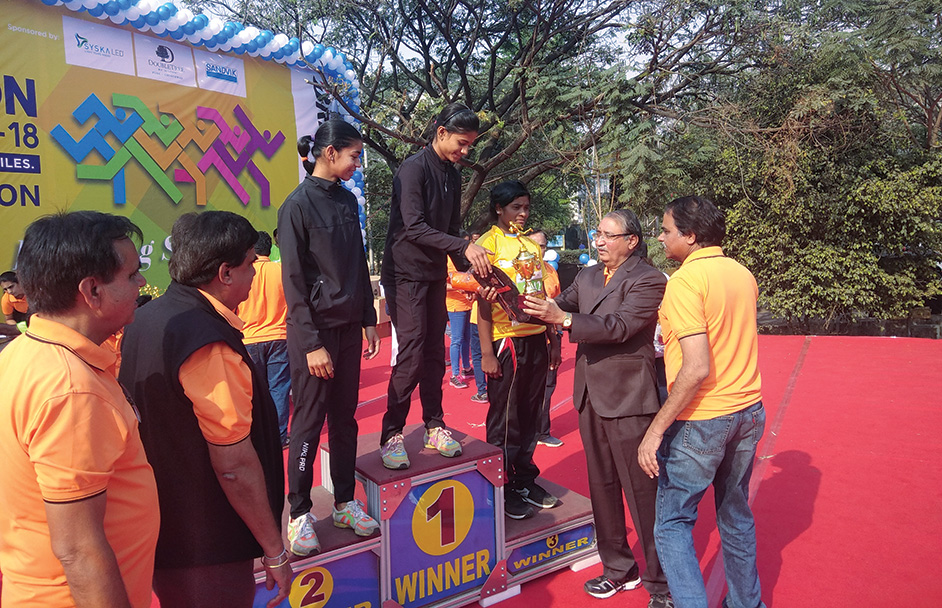
Honing talent
Melghat Mitra also offers career counselling, enabling young Korkus to gain admission in schools and institutes and secure jobs in the police force, military, forest department, etc on graduation. Many have learned automotive manufacturing skills at Tata Motors; five women graduates are working there now. The 56 youth who work as forest guards are now dismantling the decades-old conflict between the forest department and the community, as well as between various tribes, ushering in peace and enabling forest conservation.
In destroying the spectre of malnutrition, Melghat Mitra and Tata Motors have effected the biggest transformation story in the region, impacting 21,000 lives for the better. They have become true Boko Mitras to an entire generation. The youngsters, once terrified of stepping into an elevator, are now scripting a new future for themselves and their communities.
—Cynthia Rodrigues




